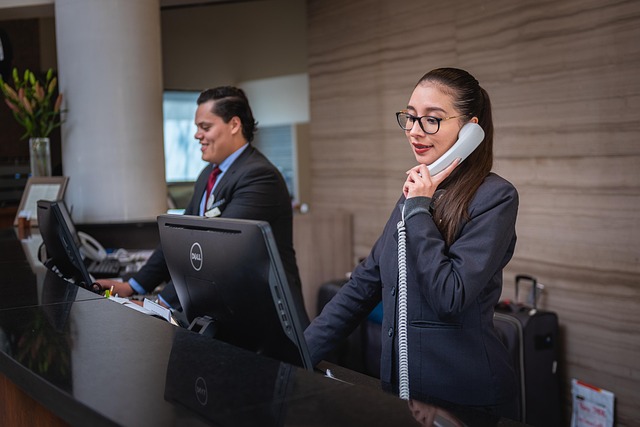Virtual Receptionist Opportunities for Seniors: New Career Paths in Later Life
Reception roles for seniors can offer ways to stay active and involved in a professional setting. Responsibilities may include managing calls, organizing schedules, and supporting office routines, helping seniors maintain skills and contribute in a meaningful, safe way.

How Seniors Can Work in Reception Roles Remotely
Virtual reception roles offer unique advantages for seniors looking to remain professionally active. Unlike traditional office jobs, virtual positions eliminate commuting, which addresses mobility concerns some older adults may face. Many companies specifically value seniors for their professional telephone manner, reliability, and extensive customer service experience. To transition into virtual reception work, seniors need a reliable internet connection, a quiet workspace, a computer with basic specifications, and a quality headset with noise-canceling capabilities.
Most virtual receptionist positions require familiarity with standard business software like Microsoft Office, video conferencing platforms like Zoom, and simple customer relationship management (CRM) systems. For seniors who need to build these skills, community centers and libraries often offer free or low-cost computer classes specifically designed for older adults. Additionally, online platforms like SeniorNet and AARP provide digital literacy resources tailored to seniors’ learning preferences.
Reception Opportunities for Older Adults in the Digital Workplace
The virtual reception industry has expanded significantly in recent years, creating diverse opportunities for seniors with varying backgrounds. Medical practices increasingly hire virtual receptionists to manage patient scheduling and initial inquiries. Law firms often employ virtual receptionists with prior administrative experience to handle client intake and appointment setting. Real estate offices utilize remote reception services for property inquiries and scheduling viewings, while small businesses across industries partner with virtual receptionists to maintain professional customer interactions without the overhead of full-time staff.
These positions typically offer flexible scheduling options that appeal to seniors, including part-time hours, weekend-only shifts, or job-sharing arrangements. This flexibility allows older adults to balance work with other priorities like family time, healthcare appointments, or leisure activities. Additionally, many virtual reception services operate 24/7, creating opportunities for seniors who prefer early morning, evening, or overnight shifts that might be less appealing to younger workers with different lifestyle demands.
Entry-Level Reception Roles for Seniors Without Previous Experience
Even seniors without extensive reception experience can find entry points into this field. Several companies provide comprehensive training programs specifically designed for remote reception work. These programs typically cover phone etiquette, basic scheduling software, message taking protocols, and how to handle common customer scenarios. The training periods generally last between one and three weeks, with ongoing support as new hires gain confidence in their roles.
Seniors interested in virtual reception work without prior experience should highlight their transferable skills. Customer service experience from any industry demonstrates valuable communication abilities. Problem-solving skills developed throughout a long career show adaptability and resourcefulness. Time management and organizational abilities from previous positions directly translate to reception responsibilities. Additionally, life experience itself offers perspective and patience that younger workers may still be developing, making seniors excellent candidates for roles requiring empathy and calm problem resolution.
Technology Requirements and Skills Development for Senior Virtual Receptionists
The technology barrier for virtual reception work is lower than many seniors might assume. While basic computer literacy is necessary, the software systems used by most virtual reception services are designed to be user-friendly and intuitive. Required equipment typically includes a computer (desktop or laptop) with at least 8GB RAM and a recent operating system, a reliable high-speed internet connection (minimum 25 Mbps download speed), a noise-canceling headset with microphone, and occasionally, a webcam for video interactions.
For seniors looking to develop their technical skills, numerous resources are available. Senior-focused technology training programs like Older Adults Technology Services (OATS) offer specialized courses. Online learning platforms including Udemy and LinkedIn Learning provide self-paced courses on reception software and customer service skills. Local community colleges frequently offer continuing education courses specifically designed for older adults returning to the workforce. Additionally, many virtual reception companies provide their own training on proprietary systems, making technical proficiency less of a barrier than many seniors might fear.
Salary Expectations and Employment Models for Senior Virtual Receptionists
Virtual reception roles offer varying compensation structures that seniors should consider when exploring opportunities. Independent contractors typically earn between $12 and $20 per hour depending on experience and specialization, with the flexibility to set their own schedules but without benefits. Part-time employees generally receive $13 to $18 hourly with more predictable schedules and potential partial benefits at higher hour thresholds. Full-time positions usually offer $14 to $25 hourly with comprehensive benefits packages including health insurance and retirement options.
| Employment Model | Typical Pay Range | Hours | Benefits |
|---|---|---|---|
| Independent Contractor | $12-20/hour | Flexible, self-determined | None, higher tax obligations |
| Part-time Employee | $13-18/hour | 15-25 hours weekly | Some at higher hour thresholds |
| Full-time Employee | $14-25/hour | 35-40 hours weekly | Comprehensive packages available |
| Specialized Reception (Medical/Legal) | $16-30/hour | Varies by arrangement | Depends on employment status |
Prices, rates, or cost estimates mentioned in this article are based on the latest available information but may change over time. Independent research is advised before making financial decisions.
Many seniors find virtual reception work through dedicated agencies that match experienced professionals with businesses needing support. These agencies handle client acquisition and payment processing while providing a steady stream of work. Others work directly for specific businesses that maintain their own virtual reception teams, often offering more stability and integration with the company culture. The growing “micro-task” platforms represent another option, allowing seniors to pick up reception shifts in smaller increments, though these typically offer lower compensation rates in exchange for maximum flexibility.
Balancing Work and Retirement Through Virtual Reception Roles
Virtual reception work provides an ideal bridge between full retirement and continued professional engagement. The flexible nature of these positions allows seniors to maintain income streams without sacrificing the freedom retirement offers. Many retirees report that limited work hours spent in virtual reception roles help maintain cognitive sharpness and social connections while supplementing retirement savings. This work model supports what gerontologists call “phased retirement,” where older adults gradually reduce work hours rather than abruptly shifting from full-time employment to complete retirement.
For seniors receiving Social Security benefits, virtual reception work offers advantages worth considering. The part-time and flexible nature of these roles makes it easier to manage earnings to stay below Social Security thresholds that might otherwise reduce benefits for those who have not reached full retirement age. Additionally, the home-based nature of these positions eliminates transportation costs and time, making even lower-paying opportunities more financially viable compared to traditional office-based roles that require commuting.




